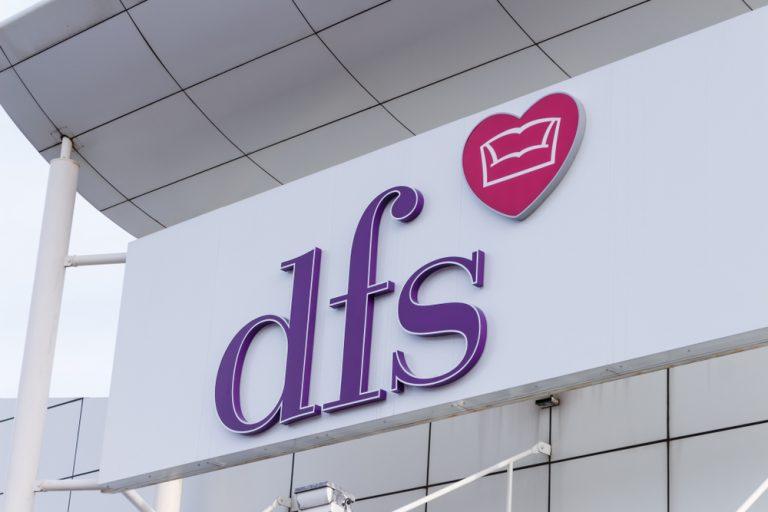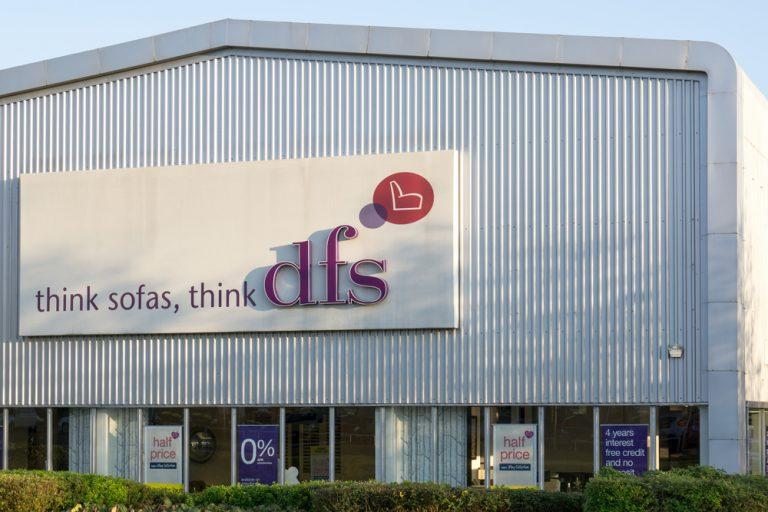Apple to replace Intel chips with in-house designs
Apple (NASDAQ: AAPL) is planning to replace Intel’s (NASDAQ: INTC) processors in Macs with the company’s own chips from as early as 2020.
In a big move that will affect both companies, Apple is reportedly working on new chip designs that will be used in laptops starting with the 12-inch MacBook.
The news was reported by Bloomberg, saying that the development of plans is still “in early developmental stages”.
News of the group’s plans resulted in Intel taking a hit, with share prices dropping six percent over Monday.
The switch in chips is not one taken lightly and will require lots of work from Apple. Apple developers will need to fully rewrite many of the software programs, as well as the company shipping an emulator that could run older code at reduced speeds.
Shannon Cross, an analyst at Cross Research, said of the change: “We think that Apple is looking at ways to further integrate their hardware and software platforms, and they’ve clearly made some moves in this space, trying to integrate iOS and macOS.”
“It makes sense that they’re going in this direction. If you look at incremental R&D spend, it’s gone into ways to try to vertically integrate their components so they can add more functionality for competitive differentiation.”
The tech giant’s new chips will be made with the hope to allow all of Apple’s devices to work together “seamlessly”.
Making your first investments
Making your first investments can be daunting with a broad choice of investments and providers offering different levels of services and products but it is an essential step for those who want to secure their financial future.
Whether you are saving for your first home, planning to boost your pension or simply want to make your money work harder, there are many services that cater for new investors with little or no experience and other providers offer comprehensive guides and education so that with a little reading you can start getting to grips with investing.
A good place to start for educational guides is the UK’s largest investment platform, Hargreaves Lansdown. Hargreaves Lansdown offers a range services for all levels of investors including share and fund dealing and has lots of research tools to help you select investments.
Guides that can help you gain the know how to make your first investment. These includes guides on funds and different types of accounts such as Individual Savings Accounts (ISAs) and Self Invested Personal Pensions (SIPPs).
SIPPs and ISAs have generous tax benefits such as income tax and capital gains tax exemption attached to the investments. The government will also add money to certain types of ISAs and to SIPPs so it’s worth looking into these.
Click here for a guide to investing in an ISA
Selecting an investment
Of even more importance to the type of account you choose to invest through is the actual investments you select. The pillar of most investment portfolios are shares in companies listed on stock exchanges. Some of the most heavily traded shares are Lloyds Bank, Vodafone, Tesco and BP. As these are household names its relatively easy to understand their business models and keep up to date with the latest developments, there are thousands of different shares to pick from and the timing of entry, as well as the outlook of the company, can have a big impact on how your investment performs. Click here for a simple and free guide on selecting shares When selecting different shares there are various valuations metrics and ratios that can help you judge whether a stock is good or bad value, click here for 10 Financial Ratios used by the pros.Using a professional
To avoid the potential pitfalls of investing in single stocks, you may want to select a mutual fund to invest in. A fund is a broad selection of shares chosen by a professional fund manager whose job it is to manage the investments of a large pool of investors. By investing in a fund you achieve a high level of diversification, which simply means you are spreading your risk and not putting all your eggs in one basket. While investing in a mutual fund secures professional input in your portfolio, it does not guarantee success as each fund will have a different area of the market it will invest in and managers have a range of strategies they employ and its impossible for them all to outperform. Click here for a free guide to investing in fundsDigital advice
If selecting your own investments sounds too much like hard work or something you don’t have the time for, do not panic as there are many services that offer fully managed services at very reasonable rates. Digital investment services such as Moneyfarm and Nutmeg offer services that manage your investments for you based on the level of risk you are prepared to take. For example a lower risk profile is likely to have a large proportion of their investment allocated to cash assets and bonds providing a fixed income as these are classed as ‘safer’ assets than shares. For those looking for something a little more racy, higher risk portfolios containing a higher proportion of shares will provide the chance of much higher returns as well as any losses if stock markets fall. Click here to find out more about investing with MoneyfarmSpotify valued at $25bn as shares set for IPO
Spotify shares will be publicly traded for the first time on Tuesday, as the music-streaming platform tests the stock market.
The platform’s listing on the market proves to be a big day for the firm as it will gauge public opinion on whether it is able to make a profit for the first time in 12 years.
The Swedish company has grown rapidly in recent years, boasting 71 million paying customers. This is over twice the amount that its rival Apple Music (NASDAQ: AAPL) has.
However, competition is something Spotify needs to keep in mind.
“Spotify’s rivals are the biggest companies in the world with bottomless pockets,” said Mark Mulligan at MIDia Research.
“What if Apple decided: let’s throw ten billion at this and see if we can throw Spotify out of the water?”
Analysts have predicted Spotify’s potential to close the gap between revenues and the costs by recording companies for the rights to play their music.
Mulligan said: “Up until now it was the warm-up lap. When that’s done we’ll see a bit of a shift in strategy and direction.”
No new shares will be traded, but shares held by the firm’s private investors will be made available. This means that Spotify has not set a price for its shares in advance.
“This approach will save the company money, but will probably lead to volatility when the stock starts trading, as the market tries to find a price it’s comfortable with,” said Laith Khalaf of stockbroker Hargreaves Lansdown.
“The fact the company isn’t turning a profit means the price discovery mechanism of a direct float is even more likely to be choppy.”
Spotify is likely to shift its content in the future and focus on making original music and podcasts – seen by Taylor Swift’s music video, which was only available on the streaming platform.
Shire shares soar after news of possible bid from Takeda Pharmaceutical
Shares in Irish pharmaceutical firm Shire soared over 20 percent on Wednesday, after Japanese Takeda Pharmaceutical said it may make an offer to buy Shire’s business.
The Japanese firm said its consideration is still “at a preliminary and exploratory stage and no approach has been made to the board of Shire.”
Shares in Shire (LON:SHP) are currently trading up 21.79 percent at 3,739.00 (1136GMT), valuing the group’s equity at roughly £34.9 billion.
Takeda is taking advice on making a potential big from Evercore, JPMorgan Chase and Nomura.
2018 has been a busy year so far for pharmaceutical companies after a quiet 2017, with deals adding up to $138.7 billion so far. Earlier this week Novartis sold its 36.5 percent stake in their joint venture, the Consumer Healthcare Business, to Glaxo Smith Kline. GSK will be paying £9.2 billion for the stake in the business, which manufactures Sensodyne toothpaste, Panadol headache tablets and Nicotinell patches.
Recent tax cuts in America, bringing corporation tax down from 35 percent to 21 percent, are also expected to boost M&As in the market.
21st Century Technology edge into profit
Specialist transport solutions company 21st Century Technology (LON:C21) edged its way into profit in 2017, after increased fleet sales and a strong order book going into 2018.
The group reported a profit of £11,000 in the year to end of December, recovering from a loss of £1.4 million in 2016. Revenue rose to £11.8 million from £11.6 million the year before, with strong fleet sales offset weaker passenger business sales.
Gross profit rose from £4.7 million in 2016 to £5 million, while operating losses falling to just £0.3 million from £2.3 million . The overall cost base fell 18 percent.
Russ Singleton, CEO of 21st Century Technology, commented:
“We’ve made enormous progress in the last year in our strategy to return the Group to profitability. The changes implemented have resulted in a far more dynamic, innovative and customer centric business, leading to several important contract wins.
“I am particularly pleased to see positive results emerging from greater collaboration between our Fleet and Passenger teams. It is this joined-up approach that will position us well for opportunities resulting from the Integrated or Intelligent Transport Systems (ITS) government initiatives, and as major urban areas move towards the creation of Smart Cities.”
21st Century Technology offer tailored solutions to the transport community, “solving complex operational requirements both on and off the vehicle”. This includes video surveillance, vehicle and driver performance monitoring and automatic passenger counting.
Shares in 21st Century Technology are currently trading up 1.69 percent at 1.00 (0947GMT).
DFS half-year profits plummet over 50 per cent
Sofa retailer DFS (LON:DFS) reported a fall in sales and pre-tax profits for the six months to 27 January, as the British high-street continues to struggle.
The firm said revenue discounting acquisitions was down by 3.5 per cent to £366.5 million, with profits 58.1 per cent lower, totalling £7 million.
DFS chief executive Ian Filby commented: “We have seen a strengthening trading performance across the first half of the financial year and through February into March.
“We therefore remain confident that, despite the current challenging market conditions, the group will deliver modest growth in EBITDA and generate strong cashflow across this financial year, in line with our expectations.”
An overall boost to group revenues, which hit £396.1 million, up from 379.9m, was attributed to “increasing scale and relative market leadership following the recent acquisition of Sofology”.
DFS acquired the brand for £25 million, as it looks to remain competitive amid an increasingly challenging retail environment.
Neil Wilson, senior market analyst at ETX Capital, commented on the results: “Broadly speaking, DFS is managing to handle the broader downturn in retail pretty well.
“The collapse of Feather & Black, Warren Evans and Multiyork, whose assets DFS has acquired, served to indicate the severe pressure on the market and the opportunity for those with enough scale to see it out.
“As we have noted on several occasions, this company has been here before, coping with recessions and property market downturns that prevent customers splashing out on big ticket items.”
The British high-street has come under pressure in recent years amid falling foot-fall and high inflation levels continue to affect consumer spending.
This comes amid reports that both department store giants House of Fraser and Debenhams (LON:DEB) are struggling after a disappointing Christmas period.
Debenhams shares dropped to 0.29p a share on Wednesday, as concerns continue to mount.
Shares in DFS are trading +8.5 percent as of 9.21AM (GMT), as investors react to the results.
Diploma report revenue rises across the board
Technical product business Diploma reported its first half results on Wednesday, with revenues coming in ahead of expectations.
Group revenues were 8 percent ahead of the comparable period, and 12 percent ahead at constant exchange rates. Revenues were even stronger in the life sciences division, up 16 precent or 8 percent on an underlying basis.
Abacus dx, the Australian diagnostic business that Diploma acquired in April last year, made a strong positive contribution to the results. Its seals sector also reported that revenues were expected to increase by 4 percent after strong trading activity in its North American businesses.
Underlying revenues grew by 3 percent in the first half, despite weak performances in Russia and Australia, with revenues rising 6 percent in its controls sector.
The firm said adjusted operating margin remains in line with the comparable period last year.
Shares in Diploma (LON:DPLM) are currently trading up 0.89 percent at 1,109.00 (0913GMT).
Paddy Power Betfair name Saga’s Jonathan Hill as CEO
Paddy Power Betfair (LON:PPB) have announced the appointment of Jonathan Hill as its chief financial officer, taking the place of current CFO Alex Gersh.
Hill will join the gambling company in the autumn from over 50s insurer Saga, where he is currently CFO. Previously he was CFO at Bovis Homes.
Shares in Paddy Power Betfair sunk on Wednesday morning in the wake of the announcement, currently trading down 1.58 percent at 7,145.00 (0833GMT).
The resignation of Alex Gersh followed that of the company’s CEO, Breon Corcoran, who had been at the helm of the company since its merger with Paddy Power. Corcoran’s successor, Peter Jackson, took over just last month.
“We’re delighted that Jonathan is joining us,” said Jackson. “He brings substantial strategic and operational finance experience in consumer businesses and I am confident he will make a significant contribution to Paddy Power Betfair’s future success.”
During its latest set of the results the company’s mood was positive, saying it can clear the hurdles of regulatory changes in the UK and Australia and that it would up its spending on advertising to spur on growth.
DFS shares rise 5pc despite 58pc profit plunge
Shares in sofa retailer DFS (LON:DFS) rose 5 percent on Wednesday morning, after maintaining its dividend despite a profit fall of over 50 percent.
Profit before tax plunged 58.1 percent to £7 million in the 26 weeks to the end of January, down from £16.7 million in the same period last year. DFS attributed the fall to £4.6 million of non-underlying costs and the “impacts of acquired businesses”.
Revenue before acquisitions also fell by 3.5 percent to £366.5 million, with earnings before interest, tax, depreciation and amortisation (EBIDTA) down 7.4 percent to £30 million.
Despite the troubling figures, the sofa retailer maintained its interim dividend of 3.7p per share. It also appeased investors by saying that it expects things to pick up in the second half of the financial year with a stronger year-on-year revenue trend than the first half.
DFS Chief Executive Officer Ian Filby said: “We have seen a strengthening trading performance across the first half of the financial year and through February into March. We therefore remain confident that, despite the current challenging market conditions, the Group will deliver modest growth in EBITDA and generate strong cashflow across this financial year, in-line with our expectations.”
Shares in DFS are currently trading up 5.65 percent at 179.60 (0823GMT).
City of London house prices fall 8pc
New data has shown London’s house prices to fall in almost half of the capital’s postcodes.
Areas most hit by the slump in prices at in central London, with the City of London seeing a fall in house prices by as much as eight percent.
However, the slump is not restricted to central postcodes. 42 percent of London’s postcodes have seen a fall in house prices over the past year.
“The weakness in London’s housing market has been building since 2015… sales volumes are first to be hit when demand weakens and housing turnover across London is down 17 percent since 2014. Sales prices are next to follow but with few forced sellers the level of price falls remains low,” said Richard Donnell of Hometrack.
The five boroughs with the steepest decline are City of London (7.9 percent), Camden (1.9 percent), Southwark (1.8 percent), Islington (1.4 percent) and Wandsworth (1.2 percent).
In contrast to London, cities across the UK are reporting high increases in house price growth.
The biggest increase in housing prices has been registered in Edinburgh, Liverpool and Manchester, which are seeing a growth of over seven percent.
Aberdeen and Cambridge have, however, also reported fall in house prices of 1.5 percent and 7.7 percent, respectively.
“We expect the number of markets with falling house prices to grow further in the coming months as buyers accept lower prices to achieve sales. The net result will be a negative rate of headline price growth for London by the middle of 2018,” said the report released by Hometrack.
Prices are not expected to grow in 2018. The Royal Institution of Chartered Surveyors said in December that it expected house price growth to “grind to a halt in 2018” due to the number of cautious buyers and low level of homes on the market.










